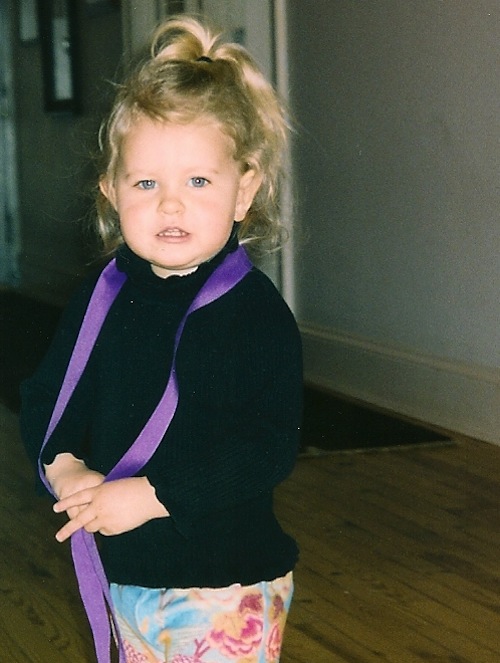These are a few things I wish I'd been made aware of when my daughter was diagnosed nine years ago. I wish all those doctors, pediatricians, therapists and people who dedicate their lives to autism had given me this list, but did not. I believe our lives would have changed dramatically had we been made aware of even a few of them. It is my hope, for those of you who may be at the beginning of your journey with an autistic child, that these things might help you avoid some of the many, many mistakes we made and a great deal of unnecessary pain.
1. Seek out the work of autistic people. If I had to choose just one thing that has had the single greatest impact on my life and the life of my daughter, it is finding these people:
Blogs by autistic people: (To see more go to my blogroll 'here' ~ A Quiet Week, Autism Experts, Autistic Hoya, Chavisory, Cracked Mirror in Shalott, Emma's Messiah Miracle of Music, Evil Autie, Gareeth, It's Bridget's Word, Just Stimming, Musings of an Aspie, Radical Neurodivergence Speaking, thAutcast, The Third Glance, Tiny Grace Notes, Yes, That Too.
Watch these two documentaries: Wretches and Jabberers and Vectors of Autism.
Read books written by autistic people. A few of my favorites: Barb Rentenbach's, I might be you, any book by Judy Endow, Peyton Goddard's, i am intelligent, Loud Hands: Autistic People, Speaking, any book by Tito Mukhopadhyay, S.R. Salas's, Black and White and Michael Scott Monje Jr.'s Nothing is Right.
2. Autism is not a disease. Read Jim Sinclair's Don't Mourn for Us. Try to think of autism the way you think about any groupings, a Mac and a PC, fiction, non-fiction, and young adult, a shirt and a pair of pants, a microwave and a gas heated oven. Autistic, neurotypical or allistic, we are all human beings. Try not to judge one over another. Judgment will not help you help your child.
3. Presume competence. (This 'post' explains what that means.) If a therapy and/or professional does not approach your child with a presumption of competence, consider finding one who does. Tremendous long-term damage can come from not presuming competence.
4. Rethink how you view communication. Listen to your child, not just to words, but to body language, facial expressions. You may be surprised by the ways your child is communicating despite not being able to do so verbally. Teach them to point with their index finger, first with support if needed, then fade the support. Give them appropriate tools and support so they can learn to type or communicate by pointing at a letter board. Our children can learn.
5. Do not speak of or about your child as though they cannot and do not understand you. (Read Barb Rentenbach's book.) We did this, without thinking, for years. Sadly it is not the only regret I have, but one of many. Still, it is worth repeating. Chances are your child can understand the emotion and often content of what you're saying even if they cannot show you in a way you recognize.
6. Throw out everything you think you know and question everything. There is a massive amount of misinformation/myths disguised as truth and fact regarding autism. People say things like "They are in their own little world," or "they are imprisoned behind their autism." These phrases are perhaps an accurate reflection of what non-autistic people feel about an autistic person, but they serve to divide rather than unite, and ultimately serve none of us.
7. Be suspicious of anyone who says they know what causes autism or how to "treat" it. Disregard any organization describing autism and your child as tragedy, an epidemic, a burden or any other word generally reserved for warfare. If you read or hear something causing you to feel fear, walk away -- it is most likely inaccurate. None of us are able to help our children when we are terrified. Fear can cause us to make decisions we will later regret.
8. Set your child up to succeed. My daughter is extremely sensitive to criticism. Saying "No!" or criticizing her does not help her learn, but instead increases her anxiety and makes her feel badly about herself. Encourage your child.
9. Do not try to make your autistic child behave like a non-autistic child. Instead, encourage your autistic child to be the very best ______ (fill in your child's name) they can be. For more, read 'this'.
10. Avoid comparing your child to anyone else. I have struggled with this and continue to. "Compare and despair" thinking hurts my child and me. Emma is Emma. She is best served when I remember this.
11. We parents are fallible. We make mistakes. As my wise mother once said, "Show and tell your children over and over how much you love them, and one day they will forgive you."
12. Get to know autistic adults. They are our best teachers, and many are leading the way so that our children's lives might be better than theirs. These people are courageously and tirelessly pushing back against the deeply ingrained prejudices, biases and misperceptions that are rampant within our society. Let's get behind them and give them the microphone so that more can hear what they are saying. One day, the person holding that microphone might just be your child!
 Emma in 2004, the year she was diagnosed
Emma in 2004, the year she was diagnosed
Ariane Zurcher can be found on her blog: Emma's Hope Book and Emma's Hope Book FaceBook page
For more by Ariane Zurcher, click here.
For more on autism, click here.